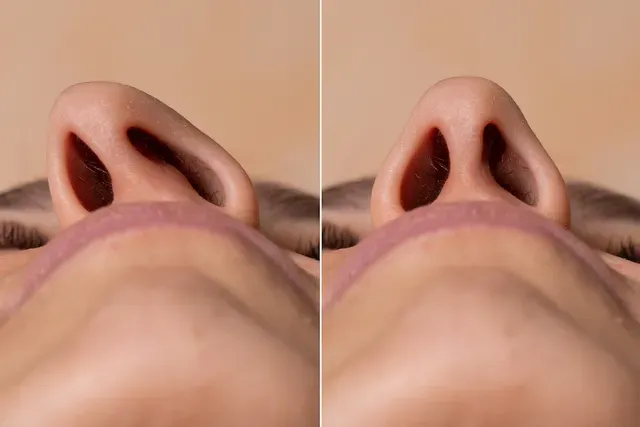Deviated Septum services offered in Baxter and Mendota Heights, MN
If you have difficulty breathing, facial pain, or nosebleeds, it could be because of a deviated septum. At Advanced Specialty Associates in Mendota Heights and Baxter, Minnesota, the skilled otolaryngology and facial plastic surgery specialists treat a deviated septum to help you breathe easier with a low risk of complications. Call the office to schedule an appointment, or use the online booking tab today.

Deviated Septum Q&A
What is a deviated septum?
A deviated septum is an abnormality of the thin wall between your nasal passages. Your nasal septum might be off-center, making one nasal passage a different size than the other. When left untreated, a deviated septum can reduce airflow and cause nosebleeds. See the Advanced Specialty Associates if you struggle with complications related to a deviated septum.
What are the symptoms of a deviated septum?
The symptoms of a deviated septum may include:
- Difficulty breathing
- Nasal blockages
- Congestion
- Swollen nasal passages
- Facial pain
- Nosebleeds
- Noisy breathing
- Dry mouth
- Disturbed sleep
If you have a deviated septum, you might prefer to sleep on your side to optimize breathing and make it easier to sleep through the night.
What are the risk factors for a deviated septum?
The causes and risk factors for developing a deviated septum include:
- Congenital disabilities
- Nose injuries
- Older age
- Infections
You might have a nose injury and a deviated septum because of playing contact sports or being in a car accident.
While you may not be able to prevent a deviated septum, it’s critical to do what you can to avoid nose injuries. Wear a helmet if you play contact sports and wear a seatbelt when riding in a motorized vehicle.
How does my doctor diagnose a deviated septum?
To find out if you have a deviated septum, your Advanced Specialty Associates provider asks about your medical history and symptoms. They examine your nose, listen to your breathing, and look at the inside of your nose using a special light and sometimes a scope.
Your specialist might apply a decongestant spray to your nasal tissues and examine your nose afterward.
How is a deviated septum treated?
The Advanced Specialty Associates team can surgically repair a deviated septum to improve the structure of your nasal passages and your breathing.
Before surgery, they numb the treatment area and offer a sedative to help you relax or fall asleep. Your surgeon can cut, remove, and restructure parts of your septum. During the same surgery, they might reshape your nose to improve its outward appearance if you’d like them to.
Afterward, you can expect tenderness, bruising, and swelling. Follow your post-surgery instructions by getting plenty of rest, taking medicines as directed, and following up with the Advanced Specialty Associates team to ensure proper healing.
To get treated for a deviated septum, schedule a consultation at Advanced Specialty Associates by phone or online today.



